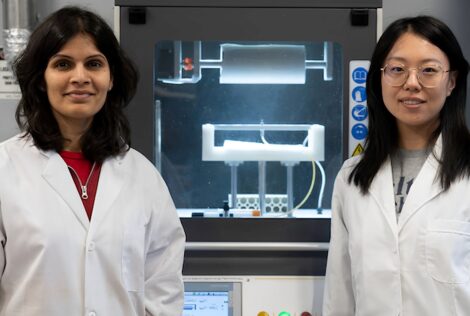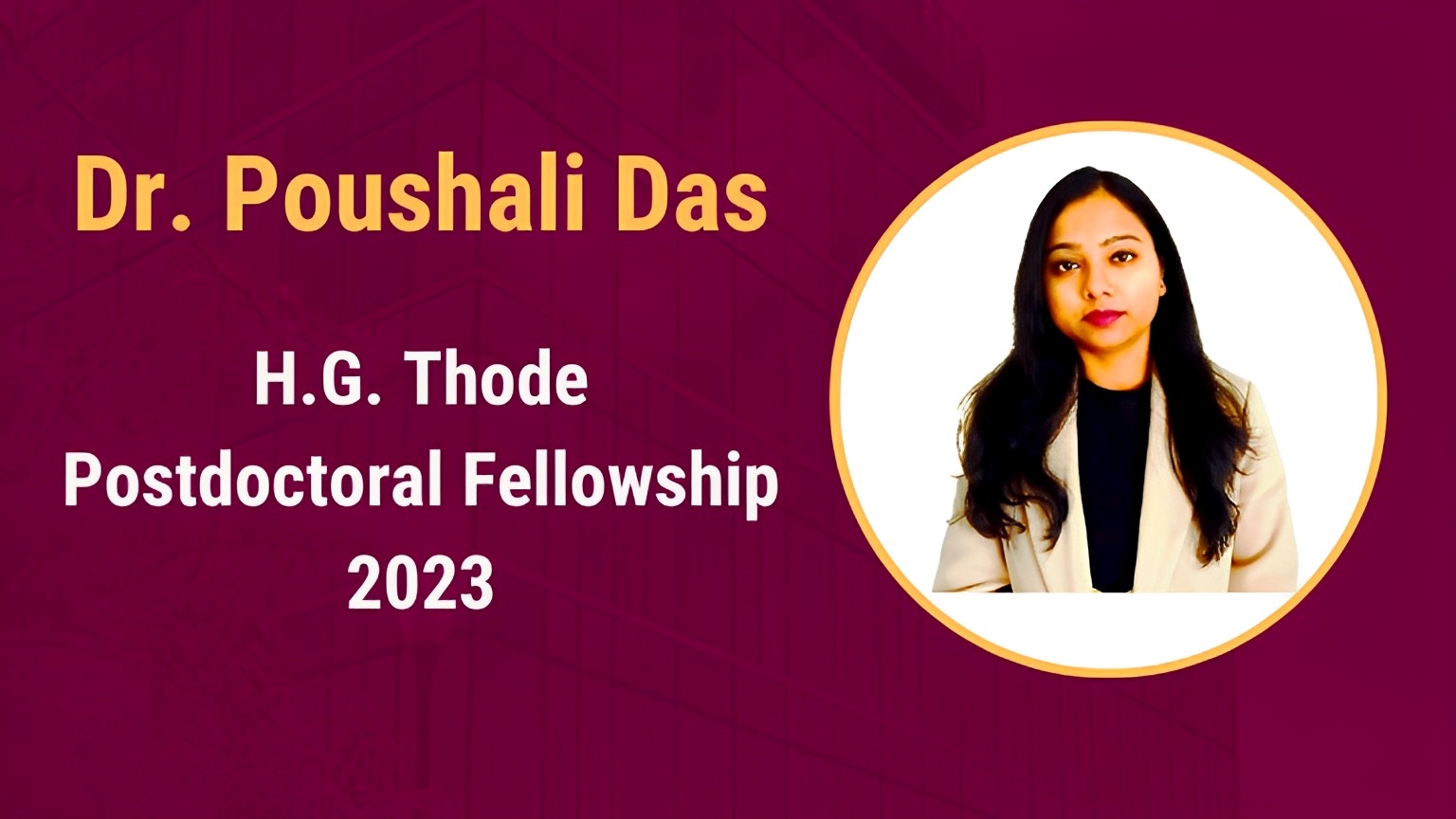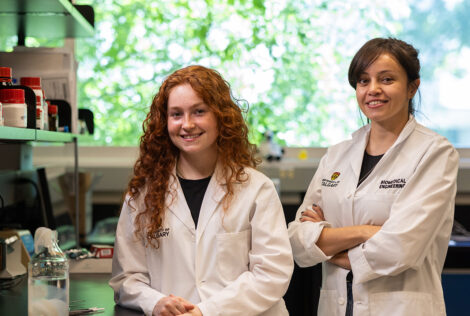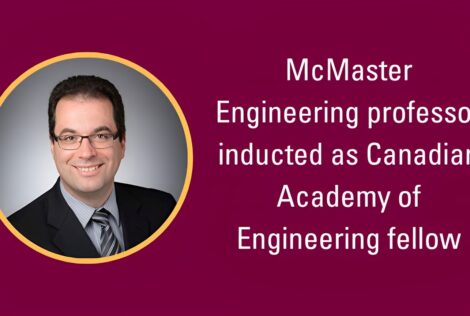

If you had asked Poushali Das as a young girl growing up in India what she wanted to be in the future, without hesitation, Das would have answered ‘a scientist’.
The Postdoctoral Fellow is living out her dreams, with an exceptional educational background to match. Dr. Das possesses a chemistry degree from Calcutta University and a PhD in Nanoscience and Technology from the Indian Institute of Technology – Kharagpur, ranked amongst India’s Top 10 universities. After earning her PhD in 2019, Das worked as a postdoctoral scientist alongside Professor Aharon Gedanken at the Institute of Nanotechnology & Advanced Materials at Bar-Ilan University in Israel. She then travelled to Canada and enrolled in McMaster’s School of Biomedical Engineering to advance her Nanotechnology experience.
Das is a recipient of numerous honours including the 2015 Government of India, Department of Science and Technology INSPIRE Fellowship and possesses an impressive publication record which includes 50 peer reviewed papers, 4 review articles, and 6 book chapters.
On March 15, she was announced as the 2023 recipient of McMaster’s H.G. Thode Fellowhsip, an accomplishment that she is ‘thrilled’ to have achieved. Named in recognition of the late Dr. Harry Thode and his achievements as a nuclear scientist and visionary university president, the Fellowship is awarded every two years to outstanding candidates for an endowed Postdoctoral fellowship in the areas of Nuclear Medicine, Radiation Sciences or Nuclear Engineering. The fellowship is highly competitive and the application requires an innovative research proposal, a personal statement outlining the accomplishments of the candidate, and external reference letters. As part of the award, Das will receive $100,000 spread across 2 years to carry out her proposed research.
My friends and colleagues showered me with love and congratulations. I was excited and felt proud of myself. This kind of achievement has motivated me to work harder and create new accomplishments.
She explains that B.Tech. Software Engineering Technology Program Chair, Dr. Seshasai Srinivasan, and Associate Professor Dr. Amin Rajabzadeh were instrumental in her decision to apply for the fellowship. “Both of them are amazing not only as supervisors but also as individuals”. Says Das, “When I expressed my desire to apply for the Fellowship, they encouraged and motivated me and also guided me throughout this journey. I am fortunate to have them as my supervisors.”
Unsurprisingly, Srinivasan and Rajabzadeh are delighted that Das has been selected for this opportunity.
“Dr. Das exceeds our expectations in every metric we have envisioned for an ideal postdoctoral researcher in our BIOx research group.” Says Srinivasan, adding that “she has an exceptionally strong technical and research background in the area of biotechnology with ample skills in the areas of nanomaterials and polymers in addition to novel material synthesis and characterization techniques.”
Dr. Das is exceptionally talented and one of the emerging stars in her field. Her research in self-healing hydrogels for advanced therapeutics comes in at a time when our healthcare infrastructure is experiencing a significant strain.
Rajabzadeh is right to say that Das’ proposed research is timely. She will be researching Smart self-healing technologies as part of the therapeutic strategies in neural tissue engineering. In fact, her research proposal was already shortlisted to be funded by the European Commission as part of the highly competitive Horizon Europe Marie Skłodowska-Curie Fellowship, where applicants from all around the world are eligible to apply to work with a university in Europe. Unfortunately, since she had to relocate to Canada, Das could not pursue this opportunity.
So, what exactly is smart self-healing technology and why has Das deemed it necessary for further research?
According to research by The Praxis Institute “Canada currently has about 86,000 cases of traumatic spinal cord injury (SCI), and approximately 4,300 new cases are registered each year.”
“With an aging population, the total number of people living with SCI in Canada is expected to exceed 120,000 in the next decade.” To address this rapid growth in SCI cases in Canada and the USA, Das is proposing to advance the development of 3D Scaffolds capable of promoting the growth of neuronal tissues and restoring lost functions, inline with the current global health concerns.
“This research addresses an urgent medical need, leading to a major improvement in the independence and quality of life for patients suffering from irreversible nervous system injuries.” says Das. She adds, “Current scaffold technology suffers from several disadvantages such as short life span, poor mechanical properties and biocompatibility. This is the reason why the technological impact of this project is extremely relevant, because current mechanistic strategies cannot provide a complete retrieval and many diseases have limited treatment options due to the deep lack of information to achieve a complete recovery from SCI. The novel approach proposed in this project will fill this gap with a multifunctional implantable gel loaded with neurotrophic factor that has sealing properties, to treat SCI.”
Commencing her fellowship in June, Das is confident of achieving key breakthroughs in this research.


